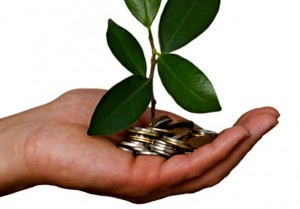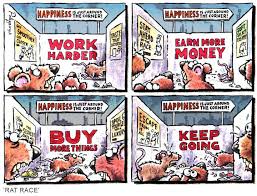Where Do We Go From Here?
Oct 16th, 2014 | By admin | Category: Economics and GDPBy Suzanne York, www.howmany.org
The stock market is up and down, oil companies are making record profits, there is a growing gap between the have’s and the have nots, a large number of people take anti-depressants, and the environment is increasingly being degraded. Do we accept this as the way it is, or is there a better way to construct our lives and economies?Speakers and attendees at the Economics of Sustainability conference in San Francisco last week argued that we can – and must – build a better world. They tackled the hard questions of how can the world organize economic relationships to honor the carrying capacity of the Earth, and how can it mitigate the effects of climate change in a way the puts people before profit and within planetary boundaries.
Time for Big Changes
Georgia Kelly, conference convener and founder of the Praxis Peace Institute, set the stage at the beginning by stating that “the time has come for radical and systemic change.” That’s sure to set off those who support business as usual, but she’s right. The engine of global society runs off of finite resources and is based on constant growth – of both the economy and number of people – and that cannot go on forever.
Other speakers, such as Osprey Oreille Lake of the Women’s Earth & Climate Action Network, International, noted that we can’t keep taking and consuming, and that the urgency of climate change is forcing us to redesign our economic system. “Humans” she said, “invented the economy and can reinvent it.”
Many people echoed the words of Naomi Klein, author of This Changes Everything: Capitalism Vs. The Climate, who has said that the world needs to create an economy that is not at war with the planet.
Easy to say, perhaps not so easy to do. And the world is on track to add another 2 billion or so people by 2050. But there are solutions (some of which are already in place); here are a few discussed at the conference:
- Worker-Owned Cooperatives – The Mondragon Corporation of Spain represents a viable and alternative economic structure. It is a worker-owned and managed cooperative that employs 85,000 people that is based on a democratic model of management and commitment to social responsibility. It was founded in 1956 and promotes “democratic organization, participatory management, the instrumental and subordinate nature of capital, and social transformation.” In the U.S., the number of workers cooperatives has grown steadily over the past 20 years.
- Public Banking – Simply put, this is the democratization of money. Concerns are growing that we are headed for another banking crisis. All money is created as bank debt, which is part of the problem. Ellen Brown of the Public Banking Institute believes public banking is the way forward. Public banks – and the U.S. has one, in North Dakota – would allow states to fund commercial development, mortgages, municipal debt, and student loans. In a nutshell, it eliminates interest. This year, North Dakota saw a $1 billion plus surplus. Brown says that “The countries with public banks mostly beat the credit crisis” (of 2008).
- Power to the People – If anything is to change, then we need to get money out of politics, and end the concept of corporate personhood. Move to Amend is a national coalition calling for an amendment to the U.S. Constitution that states that inalienable rights belong to human beings only, and that money is not a form of protected free speech under the First Amendment and can be regulated in political campaigns. Encouragingly, this movement crosses political boundaries and is uniting and empowering Americans citizens to take back our democracy, which is essential to building a better world.
Caring for Our Only Home
The term economy is derived from the Greek “oikos nomos” which means household management. Much of the world is not doing a very good job of taking care of its house. Fortunately, the reality that the current system is unsustainable is growing. Recently, eleven recipients of the Nobel Peace Prize representing diverse backgrounds said that excessive consumption threatening planet, and humans need to live more sustainably.
Those supporting business as usual will claim that any effort to change the system will kill the economy. But there are a lot of initiatives all around the country that aim to create healthy economies and communities that offer real paths forward. Check out the New Economy Coalition, Transition Town Movement, sharing economy, true cost economy, steady state economy, sustainable economies, to name a few.
Orielle Lake nicely summed up the direction most want the world to take when she said “My hope is that the current crisis will bring us back to earth.” As the saying goes, there is no Planet B.
Suzanne York is a senior writer with the Institute for Population Studies.


